#family welfare programs
Explore tagged Tumblr posts
Text
Big Changes to Singapore’s Welfare System: What Every Family Needs to Know!
The Singapore government has rolled out several key welfare initiatives aimed at improving support for the elderly, expanding housing grants for low-income families, and strengthening family welfare programs. These changes will provide increased financial aid in areas like healthcare, housing, and childcare, ensuring that vulnerable groups in society have better access to essential…
#childcare subsidies#elderly support Singapore#family welfare programs#government grants Singapore#healthcare assistance Singapore#housing grants#low-income families#Singapore welfare 2024#social safety net#welfare policy changes.
0 notes
Text
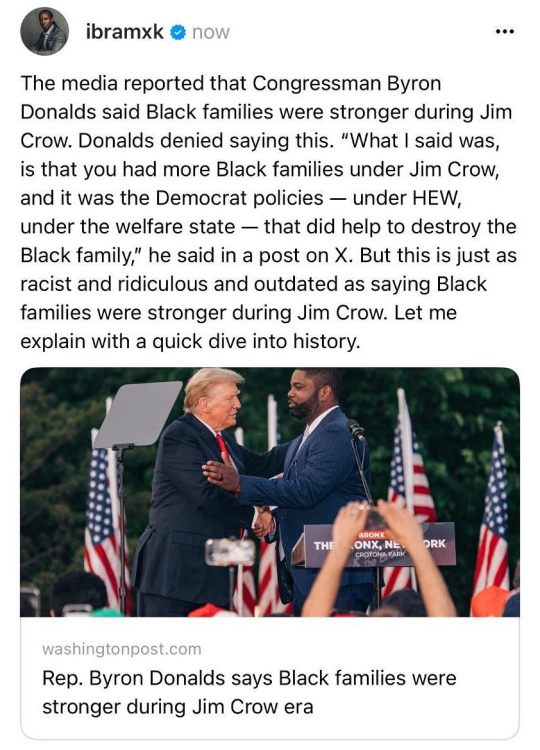
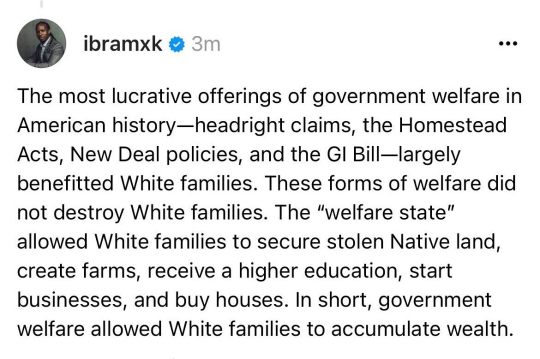
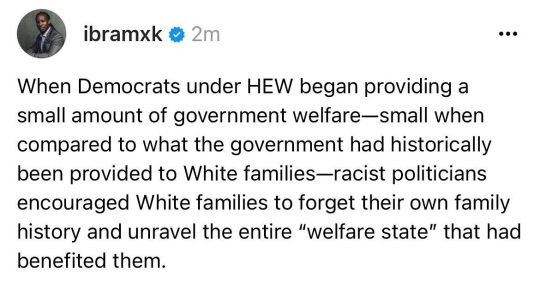
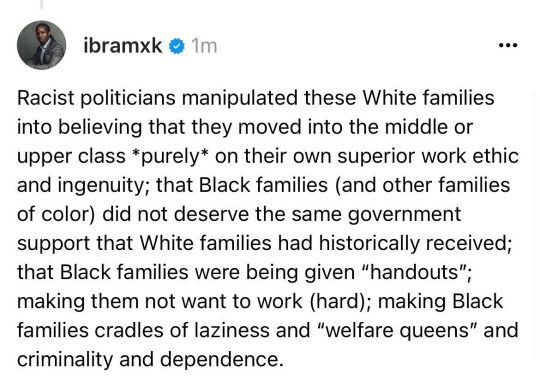
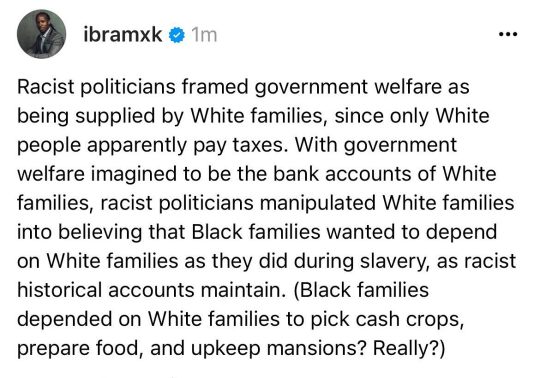
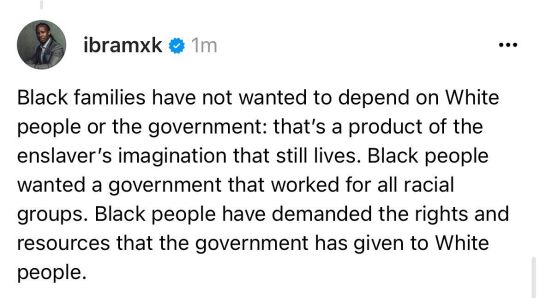
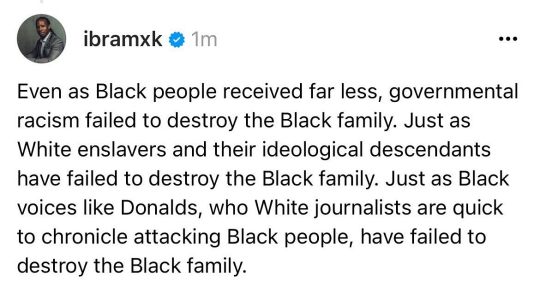
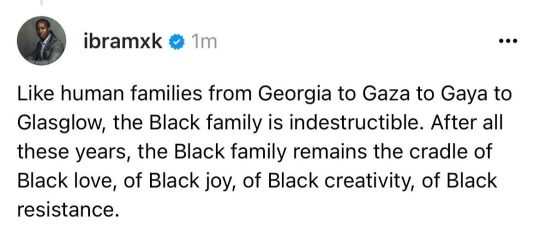

#jim crow#black family strength myth#black history#white supremacy#brian donalds#black republicans#welfare programs#government assistance#racial injustice#homestead act#new deal#gi bill#white privilege#wealth disparity#racial hatred#black family oppression#white supremacist narratives#systemic racism#black family resilience#jim crow laws#black family strength#black republican lies#government welfare#oppression of black people#historical racism#welfare myths#black history distortion#economic disparities#homestead act benefits#new deal exclusions
614 notes
·
View notes
Text
Maggie Fox at The Fuller Project, via The Guardian:
As they prepare to take control of the White House and Congress next month, conservatives are eyeing cutbacks to federal programs that help tens of millions of women pay for healthcare, food, housing and transportation. Slashing or overhauling social support programs, long a goal of Republican lawmakers, could be catastrophic for women experiencing poverty. Supporters contend the social safety-net programs are already grossly underfunded.
“With this new administration that is coming in … I really am concerned about the lives of women. We are seeing so many policies, so many budget cuts,” said Christian Nunes, president of the National Organization for Women. Republicans say they want to keep campaign promises to cut government spending, and three major programs make easy targets: Medicaid, the joint state/federal health insurance program for people with lower incomes; Temporary Assistance for Needy Families (TANF), a cash-allowance program that replaced welfare; and the Supplemental Nutrition Assistance Program (Snap), widely known as food stamps. While conservatives frame cuts as making government more efficient and even restoring freedom, advocates for and experts on families with little or no income say reducing these programs will throw more people – especially women and children – further into poverty. “It is going to fall heavily on women,” said Elaine Waxman, a senior fellow in the Income and Benefits Policy Center at the Urban Institute, a non-profit research organization.
Predicting precisely what Republicans in Congress and the Trump administration will do is difficult. Congressional leaders are close-mouthed about negotiations, and the president-elect has not finished putting together his advisory team. None of the spokespeople contacted for this story returned calls or e-mails. But organizations known to advise top leaders in Congress and the previous Trump administration have laid out fairly detailed roadmaps. Project 2025, the conservative Heritage Foundation’s blueprint for the incoming administration, denies its proposed changes will harm women, saying instead that marriage and “family values” will improve their economic situations. “Marriage, healthy family formation, and delaying sex to prevent pregnancy are virtually ignored in terms of priorities, yet these goals can reverse the cycle of poverty in meaningful ways,” reads the section on proposed changes to TANF and Snap.
Numerous other groups that have studied the problem say forcing or even encouraging marriage will not make poverty disappear. And a recent study by a team at the University of South Carolina found that when state laws make it harder for pregnant women to get divorced, they’re more likely to be killed by their partners. Trump has promised not to attack the two most expensive and popular government programs: social security and Medicare. But he and Congress are up against a deadline to extend his 2017 tax reforms, which raised the federal deficit. They’ll have to cut something, and social spending programs, especially the $805bn Medicaid program, are low-hanging fruit for conservatives. Trump repeatedly tried to slash Snap during his last tenure in office: his 2021 budget proposal would have cut the program by more than $180bn – nearly 30% – over 10 years. Conservatives in Congress have continued these efforts and, with majorities in the House and Senate, they may be able to get them through next year. The Republican Study Committee, whose members include about three-quarters of the House Republican caucus, recommends more work requirements for Snap and TANF.
[...] Snap currently helps 41 million people buy groceries and other necessities every month. Women accounted for more than 55% of people under 65 receiving Snap benefits in 2022, according to the National Women’s Law Center, a gender justice advocacy group. About one-third of them were women of color, the NWLC said. Among other things, cutting these programs will trap women in dangerous situations, the NWLC said: “SNAP helps survivors of domestic violence and sexual assault establish basic economic security.” TANF, which provides cash assistance, overwhelmingly benefits women. In 2022, 370,000 TANF adult recipients were female and 69,000 were male, according to the Department of Health and Human Services. Perhaps Medicaid is the most tempting target for conservatives because they can use it to undermine the Affordable Care Act, also known as Obamacare. The GOP has been gunning for the ACA since it was signed into law without a single Republican vote in 2010.
Republicans and their he-man woman-haters club agenda blooms with their inane proposals to cut subsidies such as SNAP and WIC that are primarily used by women.
#War On Women#SNAP#WIC#119th Congress#Food Assistance#War On The Poor#TANF#Welfare#Supplemental Nutrition Assistance Programs#Women Infants and Children#Temporary Assistance For Needy Families#Poverty#Project 2025#Medicaid#Women
17 notes
·
View notes
Video
youtube
TANF: Last Week Tonight with John Oliver (HBO) [source]
"John Oliver discusses TANF – a federal program designed to help families with little to no income – who’s currently receiving these vital funds, who should be receiving them, and what it all has to do with Brett Favre.” [22 mins 44 sec]
#TANF#Temporary Assistance for Needy Families#welfare#federal welfare#anti poverty programs#Last Week Tonight#John Oliver#Brett Favre#Ted DiBiase#Ronald Reagan
7 notes
·
View notes
Text
President Richard Nixon: The War On Poverty
Source:The New Democrat “The arguments that framed President Richard Nixon’s Family Assistance Plan have wielded tremendous influence over US antipoverty and family policy debates, setting the stage for five decades of policy development that have led us back to a “guaranteed income” through the temporary expansion of the child tax credit in 2021. Today, the US faces a safety-net design that…
#1969#2025#AEI#America#American Enterprise Institute#Angela Rachidi#California#Center Right#Family Assistance Program#President Richard Nixon#Progresisves#Progresive Republicans#Progressivism#Republican Party#Richard Nixon#Richard Nixon Foundation#The 1960s#United States#War on Poverty#Washington#Washington DC#Welfare to Work
0 notes
Text
Hey if you're from the U.S and you care about Native kids & ICWA, The National Indian Child Welfare Association needs your help before September 17th 2024
Text SIGN PBAZHN to 50409 to send this letter to your US House Representative
Please support H.R. 9076 when it reaches the house floor. Native families deserve support from the federal government, especially when it comes to keeping Native children with Native families.
This bill includes critical provisions for tribes that receive funding under the Title IV-B child welfare programs, such as:
- Increasing funding for tribal agencies and courts.
- Reducing administrative burdens.
- Enhancing data collection on Indian Child Welfare Act (ICWA) cases in states.
Please sign and share, it takes about 30 seconds to use resist bot. Thank you!
3K notes
·
View notes
Text
To my Asian, European, African, and Canadian friends...do y'all wanna know how the United States found itself under a fascist, Hitler-loving dictator named Donald Trump?
In another post, I started my timeline in 1980. The year I was born. But, it was also a turning point in US politics.
First, let me share my credentials.
- Bachelors of Arts - History
- Juris Doctor - Public Interest Law (Critical Race Theory)
- Masters of Philosophy (research degree) - Sociology (Race, Ethnicity, Conflict)
Just recently, we buried President Jimmy Carter, who was the president, when I was born. Jimmy was from Georgia, like my grandmother, and he came from a Southern Baptist background. Southern Baptists are known for being very conservative Christians who did not support abortion.
Jimmy, despite that background, actually supported LGBTQ rights by lifting a federal ban. He supported Roe v. Wade which protected access to abortion. And, he established the federal Department of Education.
However, Jimmy had an antagonistic relationship with Congress, and that alienated several Democrats, including Ted Kennedy, who was the brother of John F. Kennedy, a president who was assassinated.
The Kennedy family has an established name brand due to JFK and Robert F Kennedy (another brother and JFK's attorney general who was also assassinated). Ted was the younger, drunken brother who caused the accidental death of a college friend.
In 1980, Ted challenged Jimmy for the presidency even though they were both Democrats. Jimmy has the incumbent shouldn't have faced a challenge from his own party, but he had just been that bad.
So, this internal strife weakened the Democratic Party entering the 1980 election. In that same year, Jimmy boycotted the 1980 Olympics in Russia due to Russia's invasion of Afghanistan. Furthermore, there was a recession.
The Republican Party nominee was a former Hollywood actor turned politician named Ronald Reagan. Ronald was the governor of California and was trailing Jimmy in the polls until a presidential debate in which Ronald used his acting skills to make Jimmy seem incompetent.
Ronald believed in "trickle down economics." He believed that if the wealthiest people were taxed less, then they would spend more, thus boosting the economy and allowing prosperity to "trickle down" to the working & Middle class.
He also believed in increased military spending as this was the height of the Cold War with Russia. My own parents voted for Reagan because my dad was in the military.
Instead of trickling down, the wealthy just grew wealthier. Republicans continued to lower taxes for these individuals and businesses, so the money never trickled down. Social services were underfunded & unemployment increased. Reagan's response was to blame Black "welfare mothers" for abusing the system.
Republicans latch onto this. They implement work requirements for government assistance and make it harder for folks to pull out of poverty. As a result, a wealth gap separated white folk from the rest. White folk felt their hard earned money was supporting lazy white & Black folk, so they continued to constrict welfare programs.
[Section added] During Reagan's term, an unknown illness is killing young, gay Black & Latino men. It's AIDs. Reagan deemed it a gay disease that only affects gay people, so no funding is allocated to study this disease. It's viewed as retribution for their homosexua lifestyle. However, overtime, they learn about HIV once non-gay men were infected. Children die from the disease because blood is not tested for it, so some are born from it through their mothers while others were given transfusions.
Under Reagan, the Fairness Doctrine ends. Under this doctrine, news agencies had to report both sides of an issue. Because of this, television stations can now present one side. Fox News opens as a conservative network.
Ronald is well-loved by white folk. He gets elected to two terms. By the end of his term, the economy has recovered, and white folk are prospering. Then, his VP, George H.W. Bush, is elected.
Under George I, the Cold War ends, but we have the Gulf War in Kuwait. He signs trade agreements that result in several American companies, namely the auto industry, to shutter their doors and build factories overseas. This is due to a change in tariffs!
Millions of Americans lose their jobs as factories close. Detroit, as the leading auto manufacturer city, is devastated. Back in the 90s, Detroit was the 4th largest US city after Chicago. These factory closures hit the Midwest, especially hard.
This makes Bush unpopular. He is challenged by a young, charismatic Democrat named Bill Clinton.
Bill was a southerner like Jimmy, but Bill was a very well-known ladies' man. Bill appeals to Black Americans, though, and that allows him to defeat George.
Bill continues expanding trade agreements. He's a fiscal conservative despite being a Democrat, and under Bill, military spending is reduced.
[Section added] The rise of AIDs leads to further hate directed at the LGBTQ. During the 90s, several queer people are murdered. One such kid was Matthew Shepard. A college kid in Wyoming, he is beaten by a gang of white men. His family was terrorized so much, that they couldn't bury him because of fears his grave would be desecrated.
[A white woman Bishop in DC invites Shepard's parents to bury him in their graveyard. That Bishop is Marian Edgar Budde, the same Bishop who gave Trump his inaugural sermon this past week. She pleaded for Trump to have mercy on the queer community because she was the Bishop who buried Shepard!]
Bill is a popular president. The economy is booming, but he's still a lady's man, and he gets in trouble with a college intern.
This scandal adversely impacts the last few years in office so much so that his VP, Al Gore, loses the presidency to George W. Bush.
George Bush won the Electoral College while Al Gore won the popular vote. There was such a tiny margin that there were numerous recounts because of faulty ballots (hanging chads). Eventually, the Supreme Court intervenes and tells them to stop the count and certify George as president.
George II is the son of George I.
George II is a popular Texan with swagger. He wants to build up the military once again.
Clinton left a surplus of money, so what did George II do? He implemented tax cuts for the wealthy. That damned "trickle down economics" again. The wealthy get wealthier, increasing the wealth gap between white folks and everybody else.
They cut taxes while cutting social services. One of his biggest "achievements" was a restructuring of our educational system called "No Child Left Behind."
NCLB emphasizes test scores. School administrations are penalized if they don't meet these standards. They lost funding, so electives such as home economics, art, Music, etc are trimmed to make room for these test standards. By this time, my dad has retired from the military and is a school principal, and I remember the stress of trying to meet these standards.
These standards emphasize STEM at the expense of liberal arts. This is happening just as the internet becomes available to all.
Amazon opens as an online used book store. Facebook is started as a college message board. There's a tech boom, so everyone is being pushed into tech fields. Liberal arts education was devalued.
During his term, 9-11 happens. We declare war on Afghanistan. Islamophobia spikes. Fox News helps drive this narrative. Christianity is now being pushed into schools, whereas schools were previously secular.
[Section added] In 2004, the assault rifle ban was lifted. Now we are seeing a dramatic spike in school shootings. The Far Right embraces the expansion of the 2nd Amendment.
Then, we go to war in Iraq.
We aren't quite sure why we're at war with Iraq. We overthrow Suddam Hussein (from the Gulf War). George declares victory, then terminates the Iraqi Army.
This triggers an insurrection. Massive casualties are coming out of Iraq. The war in Afghanistan is overshadowed.
George serves two terms, but his VP is so unpopular that he doesn't run for president. Instead, the Republican nominee is John McCain.
Two Democrats fight for the nomination. Hillary Clinton, the wife of Bill, and Barack Obama.
Barack was a young, biracial Senator from Illinois. I attended law school in Illinois, and one of my classmates had been his legislative aide. I met Barack twice while a student. The first time, he had come to campus to propose a college-savings account. After his press conference, I latched onto his arm and refused to let go until he heard me, and I explained that his proposal was unrealistic because it assumed that a single mother would have the resources to save for an education when it was more likely her money would go towards groceries & rent or other immediate needs. (Fast forward two-three years, and the dude is repeating my line during the State of the Union! I had changed his mind!)
Barack beats Hillary for the nomination. He defeats McCain and is sworn in as the 1st black (not Black) president.
Obama is popular and well-loved by most Americans. Under his tenure, gay marriage is legalized.
Fox News triples down on their hatred.
Their network booms. They push Islamophobia 24/7. Highlight the fact that Obama's father was Muslim and that his middle name was Hussein.
Older Americans are watching program after program of this negativity. A movement starts called the Tea Party movement, which positions itself as a fiscally conservative movement. A bankrupt slumlord with a reality TV show gains popularity with these folks.
I wrote my master's dissertation on the Tea Party movement. It's called "Jesus and the White Man."
Donald Trump
Donald latches onto the Islamaphobia. He calls Barack by his middle name and questions his birth certificate. Donald grows popular with older Americans.
At the end of Obama's term, the son of VP Biden dies. This devastated Biden. He had lost his infant daughter & first wife in a car accident. He decides not to run for president.
Obama supports Hillary.
It is now Hillary v. Trump.
Trump pushes misogyny and Islamaphobia. Hillary is Bill's wife and a woman. She is the most qualified presidential candidate to ever run (at that time).
During Obama's last year in office, Justice Antonin Scalia* dies. Obama has the privilege to nominate that next Justice, but Mitch McConnell stalls through the election.
But older white Americans were barely okay with a black president. They were not about to let a woman serve as President. At the same time, an organization called Cambridge Analytica began to fine-tune an ultra conservative agenda.
With the help of Russian intelligence, they use Facebook ads to try to persuade voters to support Trump. They succeeded with white folk, but they did not succeed with the Black vote.
Russians used African bot farms in order to try to persuade Black Americans to support Trump. We rejected him at 90%.
Donald wins the Electoral College but not the popular vote.
Donald is a corrupt and ineffectual president. He tried to bribe foreign leaders and shared US intelligence with Russia.
However, as a populist, he latches onto the Christian Right. He nominates 3 Supreme Court Justices who lie during their confirmation hearings. These Justices will ultimately vote to overturn Roe v. Wade.
The Christian Right love this. But then COVID hits and the incompetence of Donald leads to millions of deaths. These Christian folk refuse to get vaccinated or wear masks.
Donald is an unpopular president and ranks as the worst president of all time.
Biden challenges him and wins.
Donald refuses to accept that he lost, so he organized an attempted coup. January 6th.
He's impeached. Twice.
McConnell refuses to take the step to have him permanently barred from office.
Biden takes office when COVID is still rampant. The Christian Right continue to push their agenda, seeking to remove protections for the LGBTQI.
Right wing media generates a lot of money. Podcasters jump on the bandwagon. Red pill content spills into the mainstream.
Kids who were isolated during COVID are now at home watching Joe Rogan & Theo Von. They spend hours upon hours on TikTok.
But unbeknownst to these kids is the history of Russian interference.
Schools emphasize STEM. They don't emphasize liberal arts or social sciences such as history or literature. The literacy rate plummeted to an all-time low. The average white American's reading level is at the 4th grade. They aren't able to engage in critical thinking.
They don't know the history of the Spanish Influenza. They don't know the history of a trade war that triggered the Great Depression. They don't know that our government has imprisoned citizens in internment camps. They don't know Hitler's rise to power.
In fact, Fox News frequently features individuals who deny the Holocaust.
Russia move their troll farms from Facebook to TikTok, where the algorithm serves as an echo chamber. Uneducated, illiterate folks gobble up 30-second videos but can't be arsed to watch anything over 5 minutes so complex issues are stripped down to sound bites.
The algorithm pushed right-wing fascist talking points. They rehabbed Donald while shifting Gen Z to the far right. They do not know how to verify information for themselves, so they gobble up misinformation and disinformation.
If a TikTok creator has millions of followers with thousands of views and likes, these kids assume that that info is factual. They do not vet shit for themselves.
Russia pushed anti-American propaganda that posed as pro-American talking points. Pushed isolationism. Pushed anti-democratic rhetoric. In fact, one of their greatest accomplishments is convincing Gen Z and uneducated, white Millennials into thinking we aren't a democracy.
We are a fucking Democratic Republic. Our constitution begins with: "We the people".
So, because of TikTok, Trump won.
That's why Biden was pushing for it to be banned before the election. The algorithm was being corrupted. But folks couldn't part from their addiction.
Folks who had been anti-Trump just 5 years ago are suddenly Trump supporters. They were brainwashed.
So, how did we get here?
We got here because most Americans are fucking STUPID.
#ask auntie#ask me anything#black girl magic#donald trump#elon musk#maga#barack obama#hillary clinton#jimmy carter#biden#kamala harris#democrats#republicans#US History#american history#American politics#US politics#LGBTQ#gay marriage#trans rights#cambridge analytica#russian interference#troll farms#facebook#twitter#tiktok#meta#amazon#ronald reagan#trump deportations
2K notes
·
View notes
Text
📌 Mutual Aid, Fundraisers, and Actions
a white heart "🤍" denotes GFM campaigns who have reached out to me via in my inbox
I will be updating this as frequently as possible with new information, campaigns, and forms of supporting displaced and vulnerable folks in Palestine, Sudan, DRC, Ukraine, and elsewhere.
Vetted GFM Campaigns 🤝
🤍 Donate to Khader and Ragheb - [€708 raised of €55,000 goal]
🤍 Donate to Amira - [€5,118 raised of €20,000 goal]
🤍 Donate to Fadi Ayyad - [$9,530 raised of $35,000 goal]
🤍 Donate to Hani Al-Sharif [$445 raised of $50,000 goal]
🤍 Donate to Mohammed Alanqer [€18,196 raised of €38,000 goal]
🤍 Donate to Ahmed Alanqer [€16,338 raised of €35,000 goal]
🤍 Donate to Kareem and Carmen [$6,971 raised of $50,000 goal]
🤍 Donate to Walaa & her family [$3,405CAD raised of $50,000 goal]
🤍 Donate to the Shamaly family [$23,910CAD raised of $90,000 goal]
🤍 Donate to Basel Ayyad [CHF1,828 raised of CHF60,000 goal]
🤍 Donate to Ashraf Alanqar [€1,463 raised of €30,000 goal]
🤍 Donate to Musab [€705 raised of €7,000 goal]
🤍 Donate to Ahmed and his family [£5,253 raised of £30,000 goal]
🤍 Donate to Alaa and her children [€2,995 raised of €20,000 goal]
🤍 Donate to Dr. Mohammed Aldeeb [€23,929 raised of his €30,000 goal]

Palestine 🇵🇸
Donate to the Palestinian Red Crescent Society - humanitarian org serving the health and welfare of the Palestinian people
Donate an eSIM for Gaza - helps Palestinians to connect to the outside world
Donate to Gaza Direct Aid - small volunteer-run program funding humanitarian aid in Gaza
Donate to Care for Gaza - supporting displaced families in Gaza
Donate to GazaFunds - find a struggling fundraiser to support

Sudan 🇸🇩
Donate to the Sudanese American Physicians Association - provides critical medical aid, food, and water
Donate to Sudan Solidarity Collective - provides direct financial assistance to civilian-led groups
Sudan Diaspora Network's Sudan Benefit Fundraiser - supports displaced Sudanese by providing medical equipment and food
Fight Hunger in Sudan: The Khartoum Kitchen appeal - feeds the hungry, up to 1,250 people daily, in the greater Khartoum area
Help Sudan- Sudan Relief Fund - helps people on the ground with immediate needs such as food, water, shelter and medication

Congo 🇨🇩
Donate to Focus Congo - partnerships with local grassroots organizations and access to resources necessary for survival
Support Friends of the Congo & the Basandja Coalition - provides food, delivers reporting, rescues children from the cobalt mines and supports diggers and miners demanding accountability, combats sexual violence and provides care for women’s health
Action Kivu - dedicated to repairing the harm done by years of violence and neglect in this region with focus on women and children.
Mutual Aim team fundraiser for Congo, Sudan, and Tigray - campaign collecting money that will be will be divided between the DRC, Sudan, and Tigray

Ukraine 🇺🇦
United 24 – main venue for collecting charitable donations in support of Ukraine
Come Back Alive – provides support to service members in Ukraine
Prytula foundation – provides support to Ukrainian Defense Forces and affected civilians
Dzyga’s Paw – provides Ukrainian Defenders with high-tech equipment
2K notes
·
View notes
Text
Today, ProPublica reports on yet another big change that stands to solve a decades-long problem we first learned about back in 2016, closing a huge loophole that allowed states to divert federal antipoverty funds to governors’ pet projects, like promoting abstinence, holding “heathy marriage” classes that did nothing to prevent out-of-wedlock births, funding anti-abortion “clinics” to lie about abortion “risks,” sending middle-class kids to private colleges, and other schemes only tangentially related to helping poor kids. It’s the same loophole that Mississippi officials tried to drive a truck through to divert welfare funds to former sportsball man Brett Favre’s alma mater, for a volleyball palace. [ ]
The agency has proposed new rules — open for public comment until December 1 — aimed at nudging states to actually use TANF funds to give cash to needy parents, not fill budget holes or punish poor people.
One change will put an end to the scheme Utah used to substitute LDS church funds for welfare, by prohibiting states
from counting charitable giving by private organizations, such as churches and food banks, as “state” spending on welfare, a practice that has allowed legislatures to budget less for programs for low-income families while still claiming to meet federal minimums.
Another new rule will put the kibosh on using TANF to fund child protective services or foster care programs, which are not what TANF is supposed to be for, damn it.
And then there’s the simple matter of making sure that funds for needy families go to needy families, not to pet projects that have little to do with poverty:
The reforms would also redefine the term “needy” to refer only to families with incomes at or below 200% of the federal poverty line. Currently, some states spend TANF money on programs like college scholarships — or volleyball stadiums — that benefit more affluent people.
4K notes
·
View notes
Text
The governor was firm: Nebraska would reject the new federal money for summer meals. The state already fed a small number of children when schools closed. He would not sign on to a program to provide all families that received free or cut-rate school meals with cards to buy groceries during the summer.
“I don’t believe in welfare,” the governor, Jim Pillen, a Republican, said in December.
A group of low-income youths, in a face-to-face meeting, urged him to reconsider. One told him she had eaten less when schools were out. Another criticized the meals at the existing feeding sites and held a crustless prepackaged sandwich to argue that electronic benefit cards from the new federal program would offer better food and more choice.
“Sometimes money isn’t the solution,” the governor replied.
.......
The new $2.5 billion program, known as Summer EBT, passed Congress with bipartisan support, and every Democratic governor will distribute the grocery cards this summer. But Republican governors are split, with 14 in, 13 out and no consensus on what constitutes conservative principle.
One red-state governor (Sarah Huckabee Sanders of Arkansas) hailed the cards as an answer to a disturbing problem. Another (Kim Reynolds of Iowa) warned that they might increase obesity. Some Republicans dismissed the program as obsolete pandemic aid. Some balked at the modest state matching costs. Others hinted they might join after taking more time to prepare.
The program will provide families about $40 a month for every child who receives free or reduced-price meals at school —$120 for the summer. The red-state refusals will keep aid from about 10 million children, about a third of those potentially eligible nationwide.
......
As with Medicaid, poor states are especially resistant, though the federal government bears most of the cost. Of the 10 states with the highest levels of children’s food insecurity, five rejected Summer EBT: Louisiana, Oklahoma, Mississippi, Alabama and Texas.
Like the school lunch program, it serves families up to 185 percent of the poverty line, meaning a family of three would qualify with an income of about $45,500 or less.
......
Some Republicans, in rejecting the aid, found critics in their own ranks. After Gov. Henry McMaster of South Carolina dismissed Summer EBT as a duplicative “entitlement,” State Senator Katrina Shealy, a fellow Republican, wrote a column with a Democratic colleague warning that “hunger does not stop during summer break.”
In an interview, Ms. Shealy said the state should not reject $65 million “just because Biden is president,” and perhaps just partly tongue-in-cheek wrapped her plea in Trumpian bunting: “Everyone wants to say, ‘America First’ — well, let’s feed our children first.”
Oklahoma initially said it rejected the program because federal officials had not finalized the rules. But responding to critics, Gov. Kevin Stitt, a Republican, sharpened his attack, calling Summer EBT a duplicative “Biden administration program” that would “cause more bureaucracy for families.”
Tribal governments, which have influence over large parts of the state, stepped in. Already feuding with Mr. Stitt, they promised to distribute cards to all eligible families on their land, regardless of tribal status, while bearing the $3 million administrative cost. The five participating tribes will cover nearly 40 percent of Oklahoma’s eligible children, most of them not Native American.
“I remain dumbfounded that the governor of Oklahoma would turn down federal tax dollars to help feed low-income children,” said Chuck Hoskin Jr., the principal chief of the Cherokee Nation.
-------------------------
some of the most stunning highlights of this story.
All I got to say is, let's feed the children? every single Democratic Governor took the money to feed the kids, every governor who rejected it, every single one, is a Republican. If you don't vote for Democrats you are STEALING food out of kids mouths.
2K notes
·
View notes
Text
Republican-to-English Dictionary
"Law and order" - Police should violently oppress marginalized people and protesters regardless of the law.
"Fiscal responsibility" - Cut all welfare programs for poor people and replace them with subsidies for the rich.
"Family values" - Heterosexual Patriarchy
"Judeo-Christian" - Christian
"Religious freedom" - Forcing Christianity on people and giving Christians special privileges.
"Marxism/Communism/Far-left" - Anything to the left of them (increasing all the time)
"The American people" - Only the people who vote Republicans
338 notes
·
View notes
Text







Emeryposting today….I mentioned a while ago that i never really talked about her lore so here it is 😵💫 “foster fail person edition” as my friend ky described it
as for How they actually ended up in corona: In short some of the first policies implemented by Eugene (who works in social work rather than as captain of the guard in my au) included two things: the very early workings of a foster care system, and a youth program, which allowed adolescents who aged out of the orphanage (around 13-14) to be assigned to apprenticeships, giving them shelter and a potential career when they may otherwise be tossed out, leading them to turn to crime to survive.
both of these programs actually ended up being so successful in corona that other kingdoms (specifically those with very large populations of orphans…) wanted to send kids in that direction as well!
Emery was born in ingvarr and orphaned when she lost her mother, Florence, at around three years old to a preventable illness. with no other known family available to take her in, she lived in an orphanage for a little less than a year. when this particular facility was preparing to send some teens over to corona for apprenticeships (think kind of like the 1850s orphan train program), emery ended up sneaking in with the group by mistake, and due to overcrowding in ingvarr’s child welfare system nobody really noticed until it was too late….😭😭😭 very worrisome for eugene who expected a group of teenagers and got a bonus little girl who was like. barely past toddler age 😭
i dont think whoever was running the orphanage was like, evil or anything though, just really stressed and overworked. they definitely worried when emery was gone, but eugene managed to get in contact and reassure them she was okay, and to save on travel costs they sent over the little info they had of her and entrusted her in eugene’s care.
In the meantime though, the twins (around 7 at the time) had a new playmate and were having the Time Of Their Lives, introducing them to everyone like she was a weird little wild animal they found or something like “Can we keep her 🥺” GAHAHAHAHA. Ilmari (10) also liked their weird little ass although they really didn’t want to admit it, they were very bossy and protective of her in that “older sister who thinks they’re hot shit” kinda way
meanwhile varian and hugo, now newly in their 30s, married, and still childless (and very happy about this decision mind you, they SAW what uknighted dream went through) are lowkey getting a little bored and looking to maybe do some travelling with nuru and yong again. They had heard about the ingvarr kids and, knowing hugo’s history, eugene had offered them to take an apprenticeship, but for a variety of reasons they had decided to decline for now…. …..And then they find out abt this four year old who apparently just Showed Up and now nobody knows what to do with her and var and hugo IMMEDIATELY get attached.
. So. obviously they didn’t have much else to do so why not.
#pansy-art#emery#tangled kids#vat7k#varian and the 7 kingdoms#varian and the seven kingdoms#varigo#varian#hugo rottewange#hugo vat7k#vat7k donella#olivia#ruddiger#princess nuru#eugene fitzherbert#I flipped hugo here a couple times by accident Whoops
302 notes
·
View notes
Text
TL;DR Project 2025
Project 2025 has crossed my dash several times, so maybe tumblr is already informed about the hellish 900-page takeover plan if Trump wins office again. But even the articles covering Project 2025 can be a LOT of reading. So I'm trying to get it down to simple bulleted lists…
Navigator Research (a progressive polling outfit) found that 7 in 10 Americans are unfamiliar with Project 2025. But the more they learn about it, the more they don't like or want it. When asked about a series of policy plans taken directly from Project 2025, the bipartisan survey group responded most negatively to the following:
Allowing employers to stop paying hourly workers overtime
Allowing the government to monitor people’s pregnancies to potentially prosecute them if they miscarry
Removing health care protections for people with pre-existing conditions
Eliminating the National Weather Service, which is currently responsible for preparing for extreme weather events like heat waves, floods, and wildfires
Eliminating the Head Start program, ending preschool education for the children of low-income families
Putting a new tax on health insurance for millions of people who get insurance through their employer
Banning Medicare from negotiating for lower prescription drug costs and eliminating the $35 monthly cap on the price of insulin for seniors
Cutting Social Security benefits by raising the retirement age
Allowing employers to deny workers access to birth control
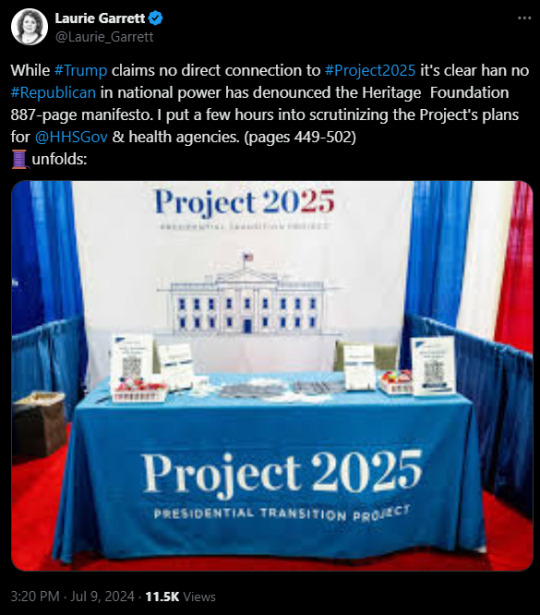
Laurie Garrett looked at the roughly 50 pages within Project 2025 that deal with Health and Human Services (HHS) and other health agencies, and summarized them on Twitter/X in a series of replies. I've shortened even more here:
HHS must "respect for the sacred rights of conscience" for Federal workers & healthcare providers and workers broadly who object to abortions, contraception, gender reassignment & other issues - ie. allow them to deny services based on religious beliefs
HHS should promote "stable and flourishing married families."
Require all welfare programs to "promote father involvement" – or terminate their funding for mothers and children.
Prioritize adoptions via faith-based organizations.
Redefine sex, eliminating all forms of gender "confusion" regarding identity and orientation.
Eliminate the Head Start program for children, entirely
Ban all funding of Planned Parenthood
Ban birth control services that are "egregious attacks on many Americans' religious & moral beliefs"
Deny pregnancy termination pills, "mail-order abortions."
Eliminate Office of Refugee Resettlement; move all refugee matters to the Department of Homeland Security
Healthcare should be "market-based"
Ban all mask and vaccine requirements.
Closely regulate the NIH w/citizen ethics panels, ensuring that no research involves fetal tissue, leads to development of new forms of Abortions or brings profits to the researchers.
Redirect the Office of Global Affairs to promoting "moral conscience" & full compliance w/the Mexico City policy
The CDC should have no role in medical policies.
"Because liberal states have now become sanctuaries for abortion tourism," HHS should use every available tool, including the cutting of funds, to ensure that every state reports exactly how many abortions take place within its borders, at what gestational age of the child, for what reason, the mother’s state of residence & by what method.
I'm still looking for a good short summary of the environmental horrors that Project 2025 would bring if it comes to fruition…
311 notes
·
View notes
Text
I will always be annoyed as a very pro-welfare person that my "camp" is not going to come around to Social Security being Bad, Actually. It is so antiquated! Most crucially, it probably isn't even welfare - the best analyses in my opinion generally view it as neutral, maybe mildly progressive, and maybe even mildly regressive. Maybe your own paper thinks it is more on the progressive side? But it is ~5% of GDP! I do not have to "debate the progressivity" of food stamps, they are obviously insanely redistributive; the opportunity cost of Social Security is huge in this regard because you do in fact have a limited tax budget to play with.
More importantly to me, it is a redistribution from the young to the old in a society where that is becoming quite costly. The "forces of social reproduction", from work to innovation to families, are pretty universally created by the non-retired, and while most people are Doing Fine that doesn't mean we aren't creating unnecessary frictions for all of that. Right now we would all socially be better off "front-shifting" more spending, giving the ~30 year olds more income and the ~70 year olds less - 70 year olds in America are quite rich, they really don't need it.
Meanwhile the reasons for the program have vanished. I get why it was a decent idea in the 1930's - it is an insurance program built around the idea that the elderly can't "bounce back" from economic setbacks since they have a limited ability to work. In a world where bank runs junking someone's savings were common this makes sense. And in a world of fertility rates hitting 4.0+ targets it was easily affordable. But nowadays the idea that the median someone "cannot save for retirement" is very silly, they absolutely can safely and reliably - banks are stable and insured, government bond programs exist, and so on.
Of course, there are those who are too poor to save, which you can address with, like, actual welfare? I won't go down the UBI rabbit hole but it is very silly to fix the problem of elderly poverty with a universal forced savings plan that pays out to people based on their past income. Just give poor people money and cut out all the middleman bullshit.
Which is the rub of course - Social Security works politically precisely because it isn't welfare, it is something "everyone" gets. Which, again as a big UBI proponent, I get, it is how politics works. But that doesn't change the fact that Social Security probably makes most people on net worse off despite how much they defend it, and limits the fiscal capacity for better alternatives. From an ideological lens it isn't a left program, and shouldn't be treated as such. (And it isn't a right program either, but in the US rightwing ideology is pretty incoherent so who knows)
But in the end winning elections is the actual determinant of policy, so may the Democrats continue to worship it - and hopefully get the courage to slip some changes in that people don't notice somewhere down the line.
181 notes
·
View notes
Text
Flint, Michigan, has one of the [United States]'s highest rates of child poverty — something that got a lot of attention during the city's lead water crisis a decade ago. And a pediatrician who helped expose that lead problem has now launched a first-of-its-kind move to tackle poverty: giving every new mother $7,500 in cash aid over a year.
A baby's first year is crucial for development. It's also a time of peak poverty.
Flint's new cash transfer program, Rx Kids, starts during pregnancy. The first payment is $1,500 to encourage prenatal care. After delivery, mothers will get $500 a month over the baby's first year.
"What happens in that first year of life can really portend your entire life course trajectory. Your brain literally doubles in size in the first 12 months," says Hanna-Attisha, who's also a public health professor at Michigan State University.
A baby's birth is also a peak time for poverty. Being pregnant can force women to cut back hours or even lose a job. Then comes the double whammy cost of child care.
Research has found that stress from childhood poverty can harm a person's physical and mental health, brain development and performance in school. Infants and toddlers are more likely than older children to be put into foster care, for reasons that advocates say conflate neglect with poverty.
In Flint, where the child poverty rate is more than 50%, Hanna-Attisha says new moms are in a bind. "We just had a baby miss their 4-day-old appointment because mom had to go back to work at four days," she says...
Benefits of Cash Aid
Studies have found such payments reduce financial hardship and food insecurity and improve mental and physical health for both mothers and children.
The U.S. got a short-lived taste of that in 2021. Congress temporarily expanded the child tax credit, boosting payments and also sending them to the poorest families who had been excluded because they didn't make enough to qualify for the credit. Research found that families mostly spent the money on basic needs. The bigger tax credit improved families' finances and briefly cut the country's child poverty rate nearly in half.
"We saw food hardship dropped to the lowest level ever," Shaefer says. "And we saw credit scores actually go to the highest that they'd ever been in at the end of 2021."
Critics worried that the expanded credit would lead people to work less, but there was little evidence of that. Some said they used the extra money for child care so they could go to work.
As cash assistance in Flint ramps up, Shaefer will be tracking not just its impact on financial well-being, but how it affects the roughly 1,200 babies born in the city each year.
"We're going to see if expectant moms route into prenatal care earlier," he says. "Are they able to go more? And then we'll be able to look at birth outcomes," including birth weight and neonatal intensive care unit (NICU) admissions.
Since the pandemic, dozens of cash aid pilots have popped up across the nation. But unlike them, Rx Kids is not limited to lower-income households. It's universal, which means every new mom will get the same amount of money. "You pit people against each other when you draw that line in the sand and say, 'You don't need this, and you do,' " Shaefer says. It can also stigmatize families who get the aid, he says, as happened with traditional welfare...
So far, there's more than $43 million to keep the program going for three years. Funders include foundations, health insurance companies and the state of Michigan, which allocated a small part of its federal cash aid, known as Temporary Assistance for Needy Families.
Money can buy more time for bonding with a baby
Alana Turner can't believe her luck with Flint's new cash benefits. "I was just shocked because of the timing of it all," she says.
Turner is due soon with her second child, a girl. She lives with her aunt and her 4-year-old son, Ace. After he was born, her car broke down and she was seriously cash-strapped, negotiating over bill payments. This time, she hopes she won't have to choose between basic needs.
"Like, I shouldn't have to think about choosing between are the lights going to be on or am I going to make sure the car brakes are good," she says...
But since she'll be getting an unexpected $7,500 over the next year, Turner has a new goal. With her first child, she was back on the job in less than six weeks. Now, she hopes she'll be able to slow down and spend more time with her daughter.
"I don't want to sacrifice the time with my newborn like I had to for my son, if I don't have to," she says."
-via NPR, March 12, 2024
#united states#flint michigan#michigan#cash aid#basic income#poverty#poverty relief#child poverty#mothers#pregnancy#prenatalcare#healthcare#healthcare access#public health#child development#good news#hope
353 notes
·
View notes
Text
Song of the Day
"Call of the moose" Willy Mitchell, 1980 As you might know, September 30th is Truth and Reconciliation day (more commonly known as Orange Shirt Day), a national day in Canada dedicated to spreading awareness about the legacy of Residential schools on Indigenous people. Instead of just focusing on a song, I also wanted to briefly talk about the history of the sixties scoop and its influence on Indigenous American music and activism.
The process of Residential schooling in Canada existed well before the '60s, but the new processes of the sixties scoop began in 1951. It was a process where the provincial government had the power to take Indigenous children from their homes and communities and put them into the child welfare system. Despite the closing of residential schools, more and more children were being taken away from their families and adopted into middle-class white ones.
Even though Indigenous communities only made up a tiny portion of the total population, 40-70% of the children in these programs would be Aboriginal. In total, 20,000 children would be victims of these policies through the 60s and 70s.
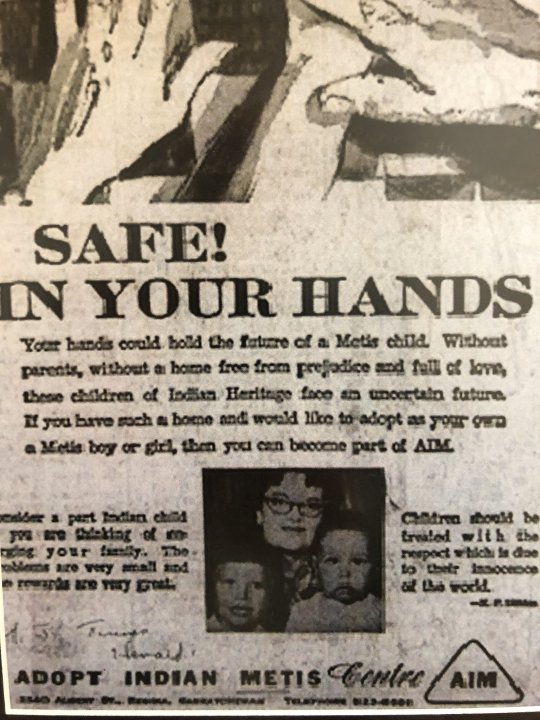
These adoptions would have disastrous effects on their victims. Not only were sexual and physical abuse common problems but the victims were forcibly stripped of their culture and taught to hate themselves. The community panel report on the sixties scoop writes:
"The homes in which our children are placed ranged from those of caring, well-intentioned individuals, to places of slave labour and physical, emotional and sexual abuse. The violent effects of the most negative of these homes are tragic for its victims. Even the best of these homes are not healthy places for our children. Anglo-Canadian foster parents are not culturally equipped to create an environment in which a positive Aboriginal self-image can develop. In many cases, our children are taught to demean those things about themselves that are Aboriginal. Meanwhile, they are expected to emulate normal child development by imitating the role model behavior of their Anglo-Canadian foster or adoptive parents."
and to this day indigenous children in Canada are still disproportionately represented in foster care. Despite being 5% of the Total Canadian population, Indigenous children make up 53.8% of all children in foster care.
I would like to say that the one good thing that came out of this gruesome and horrible practice of state-sponsored child relocation was that there was a birth of culture from protest music, but there wasn't. In fact, Indigenous music has a long history of being erased and whitewashed from folk history.
From Buffy Saint-Marie pretending to be Indigenous to the systematic denial of first nations people from the Canadian mainstream music scene, the talented artists of the time were forcibly erased.
Which is why this album featuring Willy Mitchell is so important.

Willy Mitchell and The Desert River Band
This Album was compiled of incredibly rare, unheard folk and rock music of North American indigenous music in the 60s-80s. It is truly, a of a kind historical artifact and a testimony to the importance of archival work to combat cultural genocide. Please give the entire thing a listen if you have time. Call of the Moose is my favorite song on the album, written and performed by Willy Mitchell in the 80s. His Most interesting song might be 'Big Policeman' though, written about his experience of getting shot in the head by the police. He talks about it here:
"He comes there and as soon as I took off running, he had my two friends right there — he could have taken them. They stopped right there on the sidewalk. They watched him shootin’ at me. He missed me twice, and when I got to the tree line, he was on the edge of the road, at the snow bank. That’s where he fell, and the gun went off. But that was it — he took the gun out. He should never have taken that gun out. I spoke to many policemen. And judges, too. I spoke with lawyers about that. They all agreed. He wasn’t supposed to touch that gun. So why did I only get five hundred dollars for that? "
These problems talked about here, forced displacement, cultural assimilation, police violence, child exploitation, and erasure of these crimes, still exist in Canada. And so long as they still exist, it is imperative to keep talking about them. Never let the settler colonial government have peace; never let anyone be comfortable not remembering the depth of exploitation.
Every Child Matters
#orange shirt day#truth and reconciliation#first nations#song of the day#indigenous folk#canadian history#sixties scoop#indigenous music#folk#folk revival#folk music#folk rock#60s#willy mitchell#song history#60s country#80s music#protest folk#music history#residential schools#american folk#american folk revival#Spotify
113 notes
·
View notes